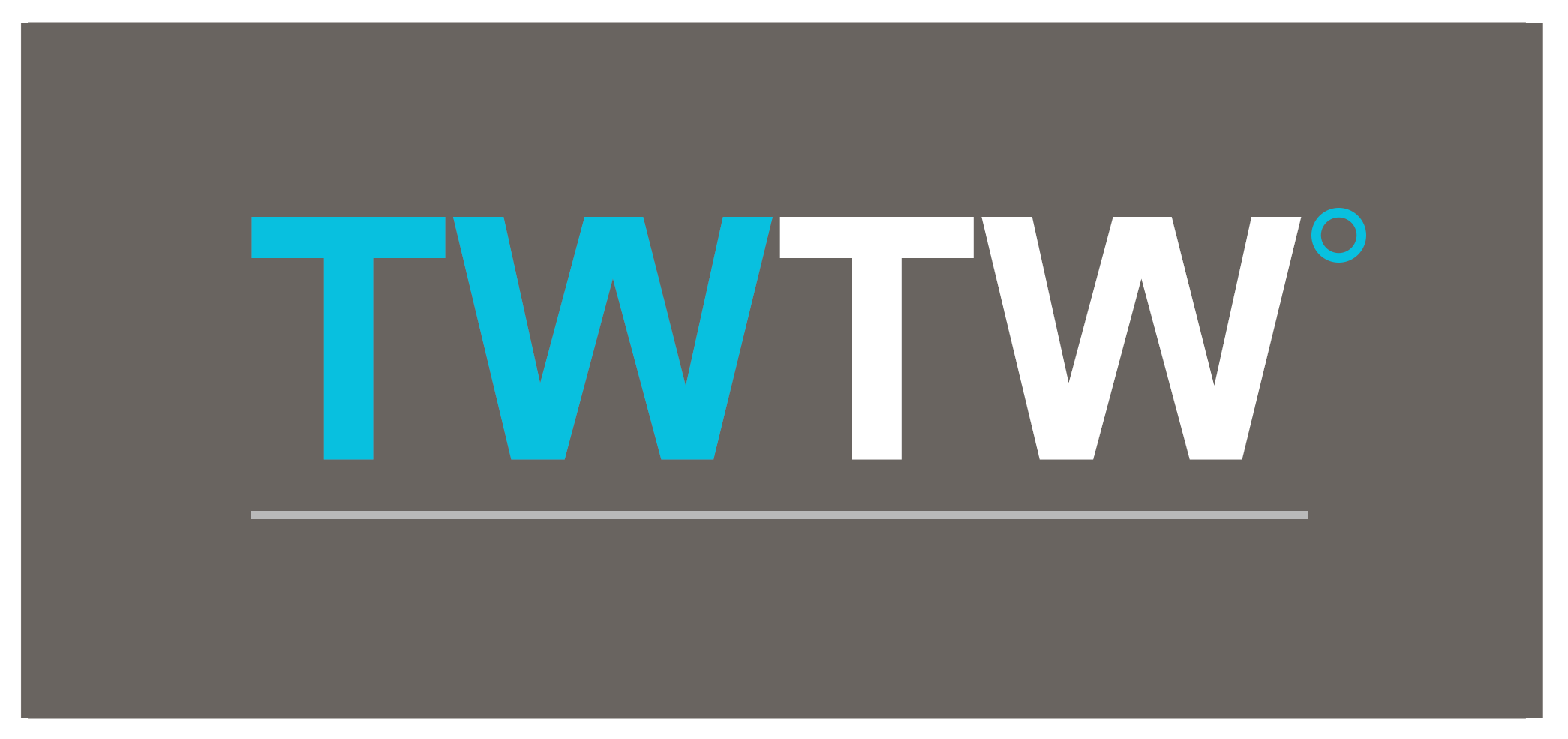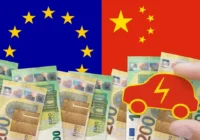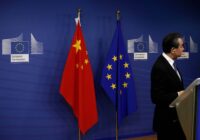The EU’s fragile deal with Turkey wakes up old ghosts of the past, causes widespread rebellion and might turn out to be illegal.
This week, the European Union (EU) and Turkey announced a deal to tackle what the BBC calls “the migrant crisis” and Al Jazeera terms “the refugee crisis.” The choice of different words by two flagship media organizations from the United Kingdom and Qatar to describe the same phenomenon is telling.
As per most dictionaries, a migrant is a person who moves from place to place to get work. As per the United Nations (UN), “migrants are people who make choices about when to leave and where to go, even though these choices are sometimes extremely constrained.” Any case “where the decision to migrate is taken freely by the individual concerned, for reasons of ‘personal convenience’ and without intervention of an external compelling factor,” makes that individual a migrant.
On the other hand, a refugee is a person who flees for refuge, especially to a foreign country during a time of political upheaval or war. Article 1 of the 1951 Refugee Convention defines a refugee as someone who “owing to a well-founded fear of being persecuted for reasons of race, religion, nationality, membership of a particular social group or political opinion, is outside the country of his nationality.”
As per the UN, migrants “choose to move in order to improve the future prospects of themselves and their families. Refugees have to move if they are to save their lives or preserve their freedom.” The fundamental feature distinguishing a migrant from a refugee is choice. A migrant chooses to leave, while a refugee is forced to do so.
The BBC and Al Jazeera may define the crisis differently, but what they do agree upon is that large numbers of people are fleeing to Europe. In 2015, over a million traveled to Europe by sea. In 2016, the number has crossed 160,000 already. The European Commission expects 3 million more to arrive by 2017.
These numbers seem daunting, but are not terribly high when compared to other countries. As of March 3, 2016, the UN estimates that over 2.7 million Syrians have fled to Turkey alone. War-ravaged Lebanon, a country with 4.5 million people as per the World Bank, has absorbed nearly 1.1 million Syrians while the unofficial figure is much higher. With over 6.6 million people, Jordan has absorbed a comparatively meager 636,000 people as of March 16. Even Iraq, a country in the midst of a bloody civil war, has taken in over 246,000 Syrians as of February 29.
Saudi Arabia, Iran, Kuwait and other Gulf countries, many of which are oil-rich, have kept their doors closed to Syrians. They are now coming to Europe, as are others from countries ridden with strife. As per the BBC, Syria, Afghanistan and Iraq provided the greatest number of asylum seekers in 2015.
It is certain that some people making their way to Europe are migrants. However, it is clear from the numbers, the timing and the origins of people making their way to the continent that most of the new arrivals are refugees. Apart from Germany, most of Europe is suffering from ridiculously high unemployment. Besides, the rise of unsavory characters like Marine Le Pen and Heinz-Christian Strache does not make Europe a place where too many people with more melanin in their skin might want to live.
It was not always so. After World War II, the Marshall Plan led to a tremendous economic boom. Hundreds of thousands made their way from India, Pakistan and the West Indies to the UK starting from the 1950s. North Africans and others from former French colonies made their way to la grande nation. Even Germany that had cleansed itself of “dirty Jews” through a horrific Holocaust ended up bringing in gastarbeiters in the 1960s. These guest workers never left and many now believe that letting so many of them into Germany was a mistake.
Europe, a land of nation states where “un roi, une foi, une loi” (one king, one faith, one law) has long held sway, does not quite have the appropriate terroir for diversity or multiculturalism. For all its internal conflicts, Europe has seen itself as Christendom. Spain had no place for the enlightened Muslim Moors of Córdoba. France could not find a place in its heart for industrious Protestant Huguenots who were chased out of their homes. Even England, the more tolerant of European Christian nations, only allowed members of the Church of England into Oxford and Cambridge in 1871. European persecution of Jews is only too well-known to need no further elaboration.
The horrors of World War II did not entirely change Europe’s attitudes. Since 1951, Europe’s nation states have been tying an ever tightening knot to create the modern European Union (EU) to make another European war “not merely unthinkable but materially impossible.” Yet the Netherlands used money from the Marshall Plan to try to recolonize Indonesia, the UK killed and tortured Kenyans in crushing the Mau Mau uprising, and France tried to remain la grande nation by behaving with caprice and cruelty in Algeria. In Vietnam, the French arrested, tortured and killed General Vo Nguyen Giap’s wife, father, sister and sister-in-law.
Europeans may not be sailing out to conquer the world to fulfill their duty of mission civilisatrice, but many retain an abiding belief in the superiority of their civilization. The influx of new people in large numbers is making them insecure at a time when they are having misgivings about their largely Muslim minorities. To add to the worries of European leaders, their once mighty economies are now in a funk, with job scarcity and low earnings.
To add insult to injury, men of Arab origin robbed and sexually assaulted German women in terrifying mass attacks this New Year’s Eve. Worse, authorities tried to sweep these attacks under the carpet. The fear of violent, depraved and ruthless foreigners prowling the streets for innocent young girls sends the public into paroxysms of rage.
 Therefore, terming the new arrivals on European shores migrants instead of refugees allows Europeans to take a tougher stand against them, without feeling qualms about being too hardhearted. To be fair, Europe is in a bind. It has tried to overcome the destructive ethnic nationalism that led to two world wars and replace it with a form of civic nationalism that prizes human rights, democracy and rule of law.
Therefore, terming the new arrivals on European shores migrants instead of refugees allows Europeans to take a tougher stand against them, without feeling qualms about being too hardhearted. To be fair, Europe is in a bind. It has tried to overcome the destructive ethnic nationalism that led to two world wars and replace it with a form of civic nationalism that prizes human rights, democracy and rule of law.
This new sense of self necessitates a kinder and gentler disposition. But ghosts of the past are proving hard to bury, and atavistic characters from France to Hungary are testing this inchoate identity. They remember the Battle of Tours and the sieges of Vienna. They fear the new people from North Africa and the Middle East as a potential fifth column with their headscarves, halal meat and fast-growing population. With increasing numbers of Europeans joining the Islamic State and Paris-style terror attacks coming to the fore, Europeans are profoundly nervous about welcoming newcomers to their societies.
German Chancellor Angela Merkel and European Council President Donald Tusk have come up with a response. They have concluded a deal as per which all those who hop over from Turkey to Greece without documentation will go right back. For everyone who is sent back, a Syrian living in Turkey will be resettled in the EU.
This is not all. Turkey was induced to agree by three huge carrots. First, Turkish citizens will be able to travel without visas to the EU. Second, the EU will shell out $3.3 billion to Turkey and might give it more aid. Third, talks will restart regarding EU membership for Turkey.
This is a momentous deal that took Europe by surprise, and Mark Mardell of the BBC observes that “left and right, ancient and modern, north and south” have come together to rebel against it. Even the normally placid UN announced that the policy could be illegal.
Turkey creates misgivings in the minds of Europeans of multiple hues. Those on the left are deeply uncomfortable with the increasing authoritarian rule of President Recep Tayyip Erdoğan. Erdoğan’s viselike grip on the media is tightening and his treatment of the Kurds is frightening. Far too many find Merkel’s deal with Erdoğan an act of desperation.
Those on the right are not too fond of this deal either. Former French President Valery Giscard d’Estaing once declared that Turkey’s entry into the EU would be “the end of Europe.” Nicolas Sarkozy, another former president of France, has declared that Turkey has no place in Europe and anyone who regards Turkey to be “culturally, historically, and economically” part of Europe actually wants the European Union’s death.”
Former Ottoman dominions such as Hungary, Bulgaria, Romania, Greece and the Balkan nations retain lingering suspicion of Turkey. Hungarian Prime Minister Viktor Orban is decrying the “secret pact” as part of a plot to create a super state. He wants to “put the brakes on Brussels” and declared “that the arriving masses from other cultures are a threat to our way of life, our culture, our habits and our Christian traditions.”
Yet the new sultan has convinced some Europeans that he is their best bet in confronting the Islamic State and tackling their “migrant crisis.” The land that once gave Europe the croissant is now to guard the gates of Vienna.
*[You can receive “The World This Week” directly in your inbox by subscribing to our mailing list. Simply visit Fair Observer and enter your email address in the space provided. Meanwhile, please find below five of our finest articles for the week.]
Trump is Part of the “Establishment”
Right-wing Americans have sunk to such a low that far too many of them are ready to anoint the worst that they have as the best they can be.
As the battle to recapture America’s “greatness” continues, it seems that a new cadre of committed crusaders has joined the fray. This cadre appears to be a loosely organized band of thugs marching under the Donald Trump banner. With no thought and lots of bluster, Trump exhorts his acolytes to remove “troublemakers” from his midst. Like good thugs, they comply. He then applauds their work. If this were simply a new low in a game of charades, it would be bad enough, but this is real life being lived in a moral and historical vacuum.
While it might be academically useful to discuss comparisons to other fascist thugs who historically have raised their ugly heads to crush opposition or target “enemies” of the message, that exercise only serves to… Read more
A Sovereign Kurdistan Under International Law
What makes international law particularly relevant to Kurdistan is that in order to recognize one, we must recognize the other.
The South China Sea is a contentious flashpoint for China, Vietnam, Indonesia, Japan, the Philippines and Thailand, all of whom lay claim over the waters. If international waters could be sovereign, China would be culpable of belligerent occupation. When the International Court of Justice tried to summon China to court to resolve disputes over ownership of territorial islands, Beijing declined. Hence, the problem with international law is it is not mandatory, but voluntary.
Kurdistan, boasting a population of at least 5 million, is a nation that flourishes despite lacking unanimous international recognition. A cursory study reveals a robust capital, a cohesive linguistic and cultural identity, and the means by which to sustain and protect its people. Yet in spite of this, Kurdistan is not a complete de jure state by any means. Just like the South China Sea… Read more
How Different Are Clinton and Sanders?
The Democratic presidential candidates could not be more diametrically opposed to each other.
We have all known Hillary Clinton since her husband Bill ran for president in 1992 against George H.W. Bush. After becoming a public figure, she carved out her own political career that saw her go from first lady to elected office, winning the New York seat in the Senate in 2000.
Eight years later, Clinton announced her candidacy for the 2008 presidential campaign, but was defeated in the Democratic primaries by then-Illinois Senator Barack Obama. The latter appointed her secretary of state, a position she held from 2009 to 2013 in one of the most critical periods of history.
Clinton is widely thought of as the pragmatic candidate for the Democratic Party whose hawkish posture on certain topics draws her closer to some in the Republican Party. She supported the invasion of Afghanistan and Iraq, and actively endorsed the NATO-led intervention in Libya in 2011… Read more
Assassination of Activist Puts Spotlight on Honduras
The brutality inflicted on Berta Cáceres has become shockingly common in Honduras.
Four days before International Women’s Day, the world lost a feminist icon. Berta Cáceres, a powerful organizer for indigenous rights and democracy, was assassinated on March 3 in Honduras. Fellow activist Nelson García was murdered on March 15 after Honduran security forces violently evicted an indigenous Lenca community.
Cáceres was raised by a mother who was a midwife and governor, and Berta, as a young woman, started the Council of Popular and Indigenous Organizations of Honduras (COPINH). She led campaigns on a variety of issues but is particularly celebrated for mobilizing the Lenca people against the Agua Zarca dam, which threatened their access to medicine, food and water. The roadblock they built lasted a year. Through legal and community action, they convinced the International Monetary Fund and the Chinese company Sinohydro to withdraw from the project. The Honduran company DESA reinitiated the dam project on the… Read more
Implementing Climate Change Policies
Civil society organizations are ideal watchdogs to ensure climate change policies are implemented.
Civil society organizations (CSO) have been the quintessential watchdogs of any society on any issue. In the fight against climate change, they represent the voices of the most vulnerable.
CSOs around the world have promoted policies on climate change and ensured that marginalized people’s interests are represented in national climate policy for many years. For instance, Bangladeshi and South Asian civil society groups such as the South Asian Alliance for Poverty Eradication (SAAPE) and LDC Watch criticized the formulation process of Bangladesh’s Climate Change Strategy and Action Plan (BCCSAP), which was financed via a multi-donor trust fund. They noted that the planning of the fund lacked transparency as CSOs were excluded from the process, and that the financing of the BCCSAP could be detrimental to Bangladesh as it involves loans from international financial institutions and would increase the country’s debt burden… Read more
The views expressed in this article are the author’s own and do not necessarily reflect Fair Observer’s editorial policy.
Photo Credit: Olaf Kosinsky
 We bring you perspectives from around the world. Help us to inform and educate. Your donation is tax-deductible. Join over 400 people to become a donor or you could choose to be a sponsor.
We bring you perspectives from around the world. Help us to inform and educate. Your donation is tax-deductible. Join over 400 people to become a donor or you could choose to be a sponsor.
Support Fair Observer
We rely on your support for our independence, diversity and quality.
For more than 10 years, Fair Observer has been free, fair and independent. No billionaire owns us, no advertisers control us. We are a reader-supported nonprofit. Unlike many other publications, we keep our content free for readers regardless of where they live or whether they can afford to pay. We have no paywalls and no ads.
In the post-truth era of fake news, echo chambers and filter bubbles, we publish a plurality of perspectives from around the world. Anyone can publish with us, but everyone goes through a rigorous editorial process. So, you get fact-checked, well-reasoned content instead of noise.
We publish 2,500+ voices from 90+ countries. We also conduct education and training programs
on subjects ranging from digital media and journalism to writing and critical thinking. This
doesn’t come cheap. Servers, editors, trainers and web developers cost
money.
Please consider supporting us on a regular basis as a recurring donor or a
sustaining member.
Will you support FO’s journalism?
We rely on your support for our independence, diversity and quality.











